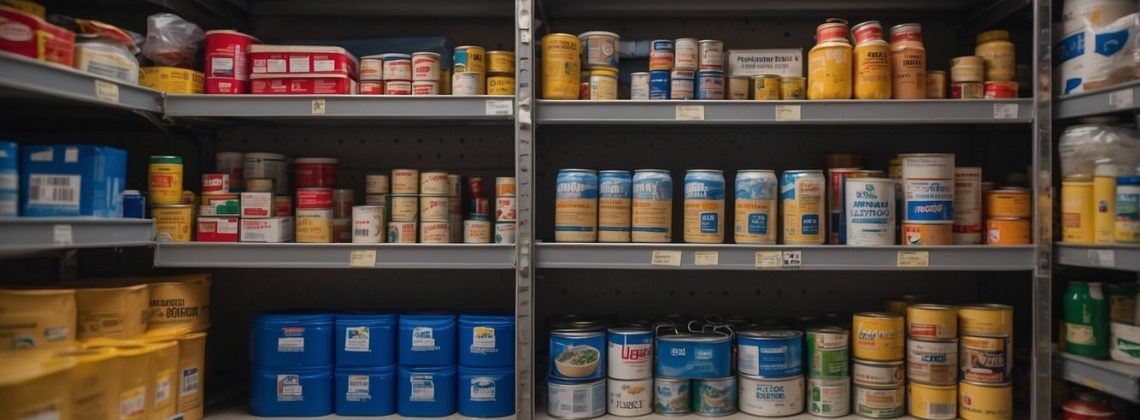
In the wake of a disaster, the very fabric of the economy can unravel, revealing a marketplace where traditional currency holds little to no value. In such scenarios, bartering becomes a critical means of securing essential supplies for survival. Stockpiling a range of items in preparation for this possibility means you’re not just planning to survive, but to thrive.
Understanding what items are most valuable in a post-disaster economy can guide your stockpile strategy. Items that are essential to life, like water purification supplies or food, naturally rise to the top of the barter list. Additionally, items that help maintain a sense of normalcy, or provide practical utility like tools or medical supplies, can also command high trade value. By preparing a diverse array of goods, you position yourself as a valuable player in the post-disaster bartering system.
Key Takeaways
- Stockpiling diverse, essential items prepares you for a barter-based post-disaster economy.
- Water, food, and medical supplies are high-value bartering items.
- Bartering can help maintain a semblance of normalcy and community cooperation after a catastrophe.
Understanding Post-Disaster Economics
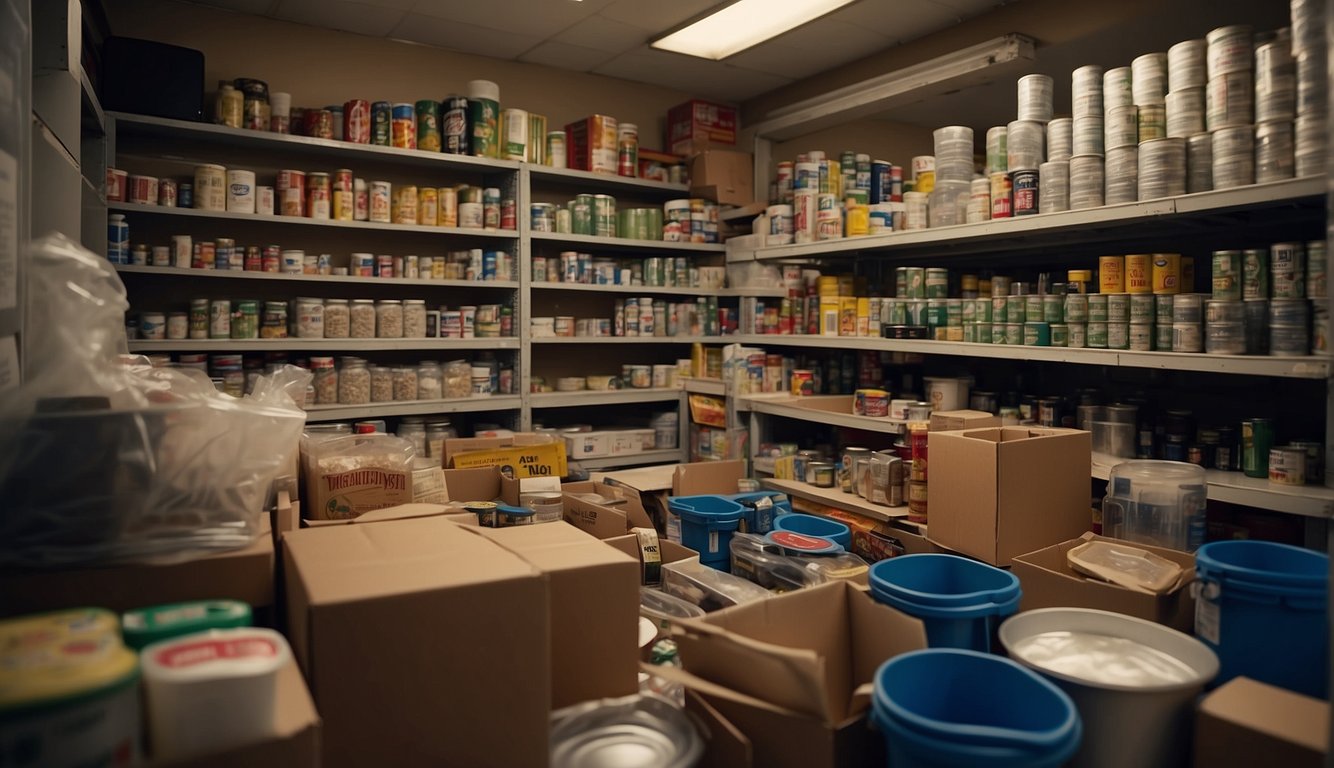
After a major disaster, traditional economic systems can crumble, forcing you to adapt to a new reality where conventional money might lose its value.
The Role of Currency and Trade
Currency serves as the lifeblood of modern economies, allowing you to buy and sell goods with ease. Yet, in the wake of an economic collapse, the value of money can plummet due to hyperinflation, rendering it nearly worthless. In these times, trade becomes a primary means of transaction, with goods and services being directly exchanged without the need for currency.
Historical Precedents and Lessons
There are plenty of historical instances where economies have collapsed, leading to periods of extreme inflation. For example, post-World War I Germany experienced hyperinflation, making currency so devalued that it was used as wallpaper. These events teach you that, when economic instability hits, having tangible, tradeable commodities is crucial for continued survival and commerce.
The Shift to a Barter Economy
As inflation rises, your paper money could become little more than a symbolic relic, making trade the cornerstone of daily transactions. A barter economy surfaces out of necessity, hinged on the direct exchange of goods and services. It’s a throwback to ancient trade practices, powered by the perceived value of items in the absence of stable currency.
In this scenario, it’s wise to have a stockpile of items universally recognized for their utility, such as non-perishable food, medicine, and fuel. These goods become your new “currency” in the market of barter, where the value of exchange items is mutually agreed upon by you and the trader.
First Steps in Disaster Preparedness
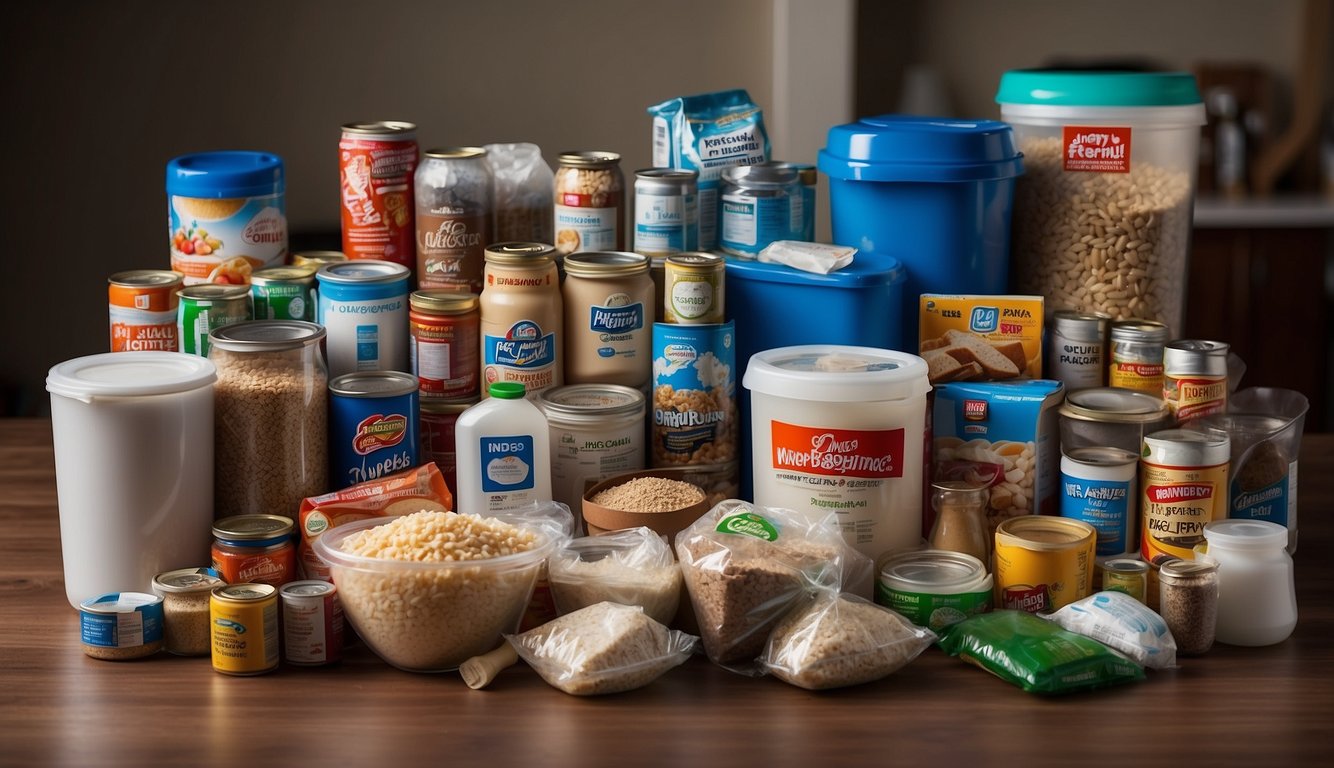
When disaster strikes, being prepared can make all the difference. Your initial focus should be on assessing your needs and developing strategic stockpiling plans.
Assessing Your Stockpile Needs
First, you need to identify what’s essential for survival. Water is critical, so start by ensuring you have a sufficient supply. Bottled water is a go-to, but also consider water purification methods. Your stockpile isn’t just about having enough; it’s about ensuring you have the right items. For example:
- Food: Non-perishable items like canned goods and dried legumes.
- Medical supplies: First aid kits, prescription medications, and over-the-counter remedies.
- Power sources: Batteries, solar chargers, or fuel for generators.
Create a checklist of these items, considering the number of people in your household and the potential duration of a disaster scenario.
Strategies for Effective Stockpiling
After understanding your needs, you should develop a stockpiling strategy. Here’s how you can approach it:
- Rotate your supplies. Check and refresh your stockpile at least once a year to ensure nothing has expired or gone bad.
- Store smartly. Leverage spaces like empty dishwashers to keep supplies safe and out of the way.
- Learn skills. Stockpiling isn’t just about materials; it’s also about skills. Knowing how to purify water, perform basic medical aid, and repair clothing can be as valuable as the supplies themselves.
Remember, effective preparedness is an ongoing process. Regularly update your plan and practice your skills to stay ready.
Must-Have Barter Items
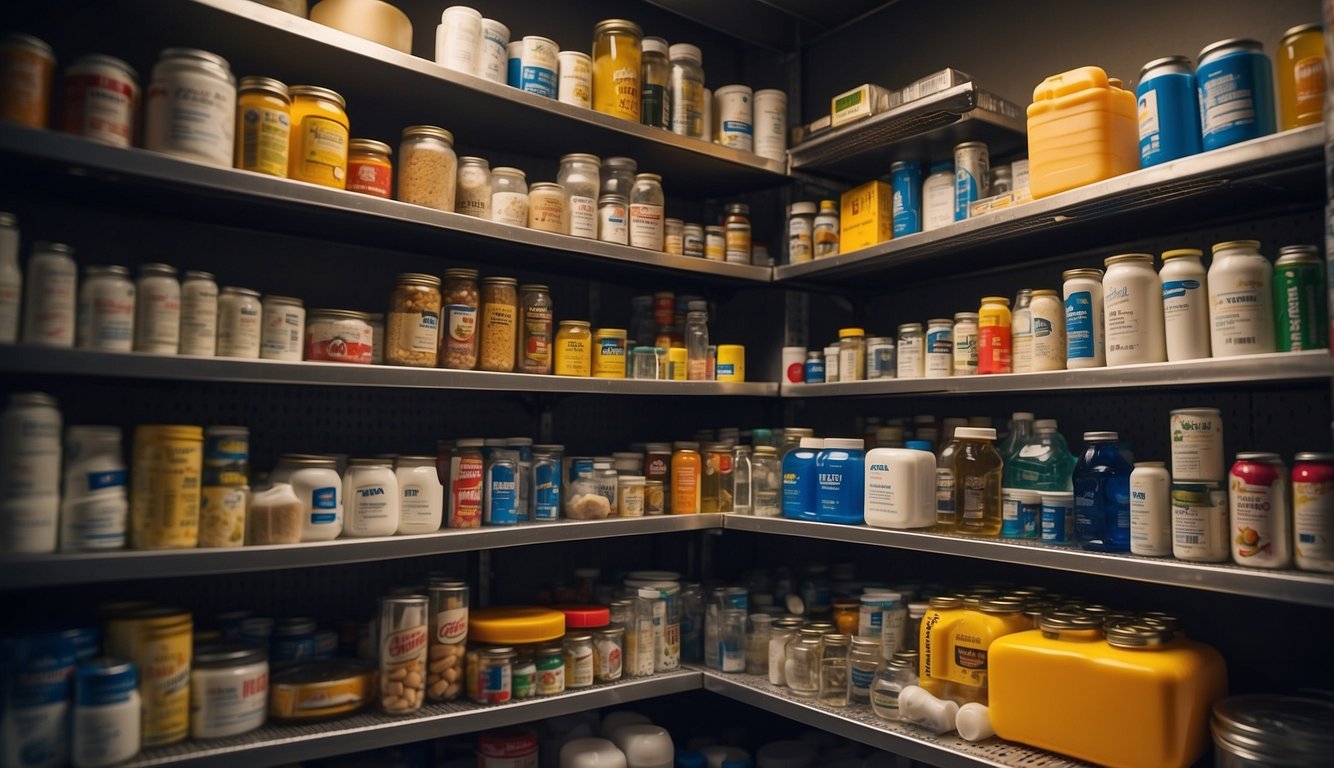
In a post-disaster economy, your cash might not hold the same value, but these items will be like gold. Stocking up on them could save the day.
Water and Purification
You can’t survive long without water, and neither can anyone else, making it a top barter item. Stockpile:
- Water bottles or containers
- Water purification tablets or filters
Food Staples and Preservatives
In emergencies, everyone needs to eat. Keep these on hand:
- Non-perishable food items like rice, beans, and canned goods
- Salt, sugar, and honey for preserving food
Medical Supplies and Hygiene
Health is wealth, more so when the healthcare system is down. Make sure you have:
- Basic first-aid supplies like bandages and antiseptics
- Over-the-counter medications and any obtainable antibiotics
Fuel and Fire Essentials
Staying warm or cooking food could be a challenge. Store items for creating and sustaining fire:
- Charcoal, firewood, or fuel
- Lighters, matches, and fire-starters
Self-Defense and Security
Safety becomes crucial when law and order are uncertain. Consider having:
- Ammunition for common firearms
- Pepper spray or other non-lethal protection means
Tools and Repair Items
Being able to fix things yourself is a key survival skill:
- Basic tools like hammers, screwdrivers, and pliers
- Rope and duct tape for various repairs and tasks
Enhancing Your Bartering Power
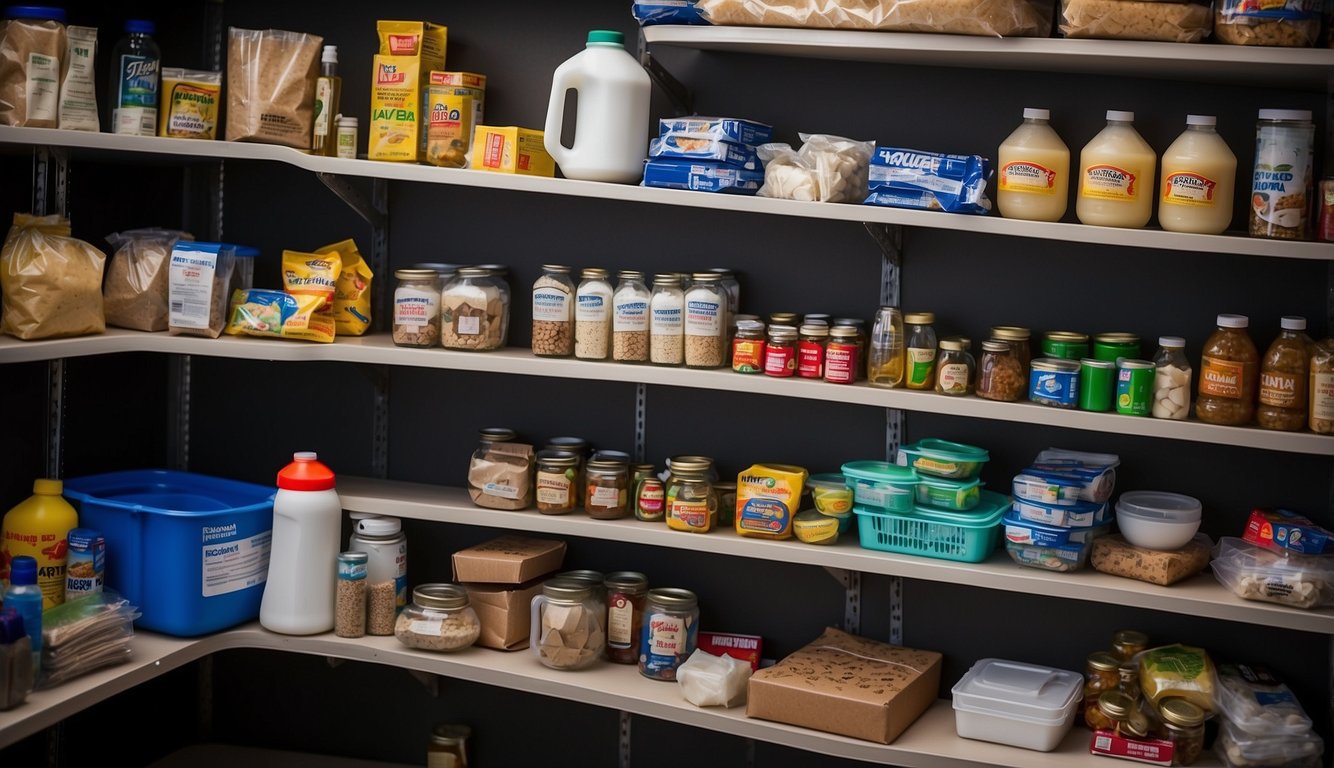
In a post-disaster economy, boosting your bartering power means having the right items and skills at your disposal while fostering solid community ties.
Developing Valuable Skills
Your skill set can be just as valuable as physical items when it comes to trade. Start by identifying your strengths and exploring ways to refine them. Useful skills might include:
- Medical expertise: From basic first aid to more complex treatments, your ability to heal contributes to your worth.
- Mechanical know-how: Being able to fix a generator or vehicle can be invaluable.
Identifying and honing such skills increases your bartering value significantly.
Building Trust and Community Relations
Trust is a priceless currency in a community, especially when traditional money loses its value.
- Get to know your neighbors and local community members.
- Offer help when needed to establish a reputation as a reliable and trustworthy individual.
Bolstering these relationships ensures a supportive network for exchange and mutual aid.
Collecting Rare and In-demand Items
Stockpiling items that become rare in crisis situations can dramatically increase your bargaining power. Focus on these:
- Precious Metals:
- Gold and silver are universally recognized for their value and are compact for exchange.
- Vital Supplies:
- Water purification means
- Over-the-counter medication
- Hygiene products
Prioritize items that are likely to be in short supply and have a long shelf-life or usability.
Sustainable Living Post-Disaster
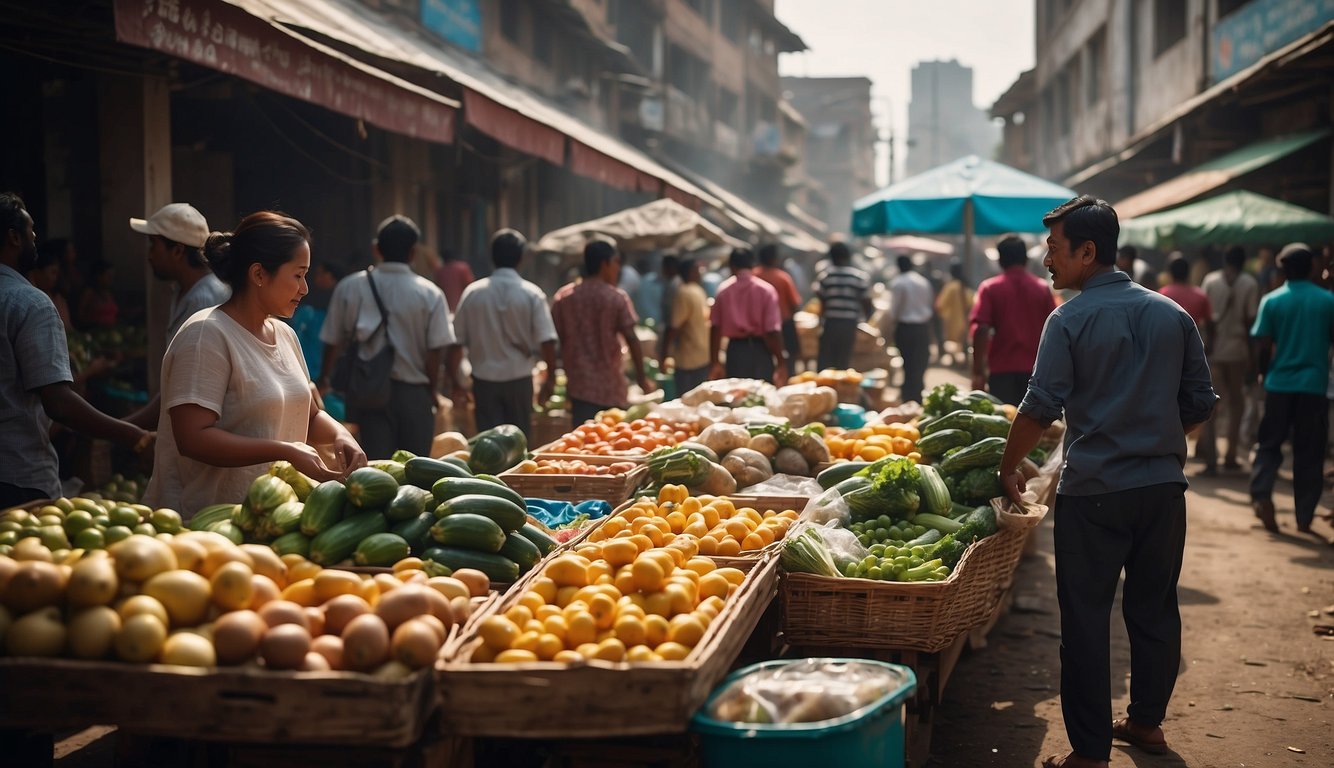
When considering post-disaster survival, sustainable living becomes crucial. It’s about getting back to basics with food, medicine, home production, and renewable energy.
Cultivating Food and Medicine
You’ll want to start with a robust seed collection for a variety of vegetables and medicinal herbs. Opt for heirloom seeds—they’re non-GMO and you can harvest seeds from your plants for future planting seasons. Keep your soil fertile using natural fertilizers, such as composted food waste or manure from your livestock, to ensure a continuous food supply.
- Vegetable Seeds: tomatoes, carrots, and leafy greens.
- Medicinal Herbs: basil, chamomile, and calendula.
DIY and Home Production
Mastering DIY skills is essential for maintaining your home and creating goods. Learn to repair clothing, fix leaky faucets, and build simple furniture. Preserve food through canning; ensure you have a stock of canning jar lids, as these need to be replaced after each use.
- Repair Kits: needles, thread, patches, and plumbing tools.
- Preservation: salt, vinegar, and a reliable canner.
Renewable Energy and Resources
Cut your dependence on the grid with renewable energy solutions like solar panels. They can power essential items, including solar lights, keeping your home lit and functional after dark. Also, consider rainwater collection systems, which can be used for irrigation or purified for drinking.
- Solar Solutions: panels, solar lights, and battery banks.
- Water Collection: barrels, filtration systems, and purification tablets.
Your efforts in these areas will set the foundation for not just surviving, but thriving sustainably in a post-disaster world.
Advanced Bartering Tactics
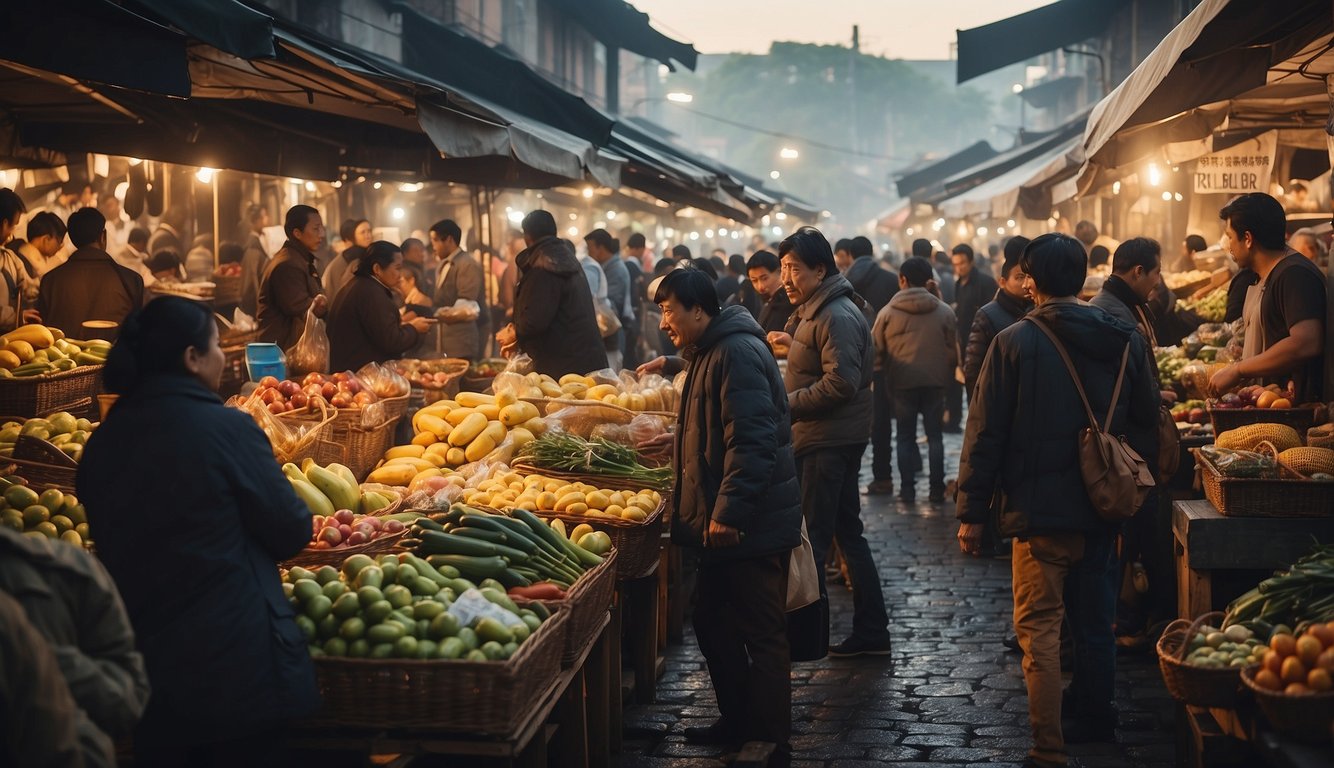
After you’ve built a stockpile for a post-disaster economy, fine-tuning your bartering skills is key. Not only will this help you get the best deals, but it also ensures you maintain good relationships with trade partners in a potentially volatile SHTF world.
Negotiation and Trade Etiquette
You’ve got to know how to handle yourself during a trade. Negotiation in a post-apocalyptic world isn’t just about getting what you want; it’s about fairness and mutual respect. First up, always be honest. Nothing kills future trade potential like a shifty deal. Remember to listen more than you talk, it gives you an edge understanding what the other person values. And, stay cool under pressure; if a trade doesn’t work for you, it’s okay to walk away.
Maintaining an Inventory Ledger
Keeping a detailed inventory ledger is crucial, so you know what’s at your disposal. Here’s a basic table to track your items:
| Item | Quantity | Desired Trade Value | Notes |
|---|---|---|---|
| Rice | 50 lbs | 2 gallons of fuel | Kept in waterproof containers |
| .22 Ammo | 1000 rounds | Antibiotics or water filters | Stored in a cool, dry place |
| LED Flashlights | 10 units | Canned food or batteries | Solar recharge capabilities |
Organize your ledger by categories like food, water, ammo, and so on. Keep this written down and hidden; you don’t want this information falling into the wrong hands.
Dealing With Scarcity and Surpluses
So, you’ve hit a point where you either have far too much of something, or it’s in short supply. Here’s what you do: use scarcity to your advantage. Rare items can fetch higher value trades. But don’t corner the market and create enemies – nobody likes a hoarder in hard times. When you’ve got surpluses, that’s your chance to build goodwill. Maybe you trade a bit more generously to establish trust and support within your community, which might just pay off when you’re the one in need.
Legal and Ethical Considerations
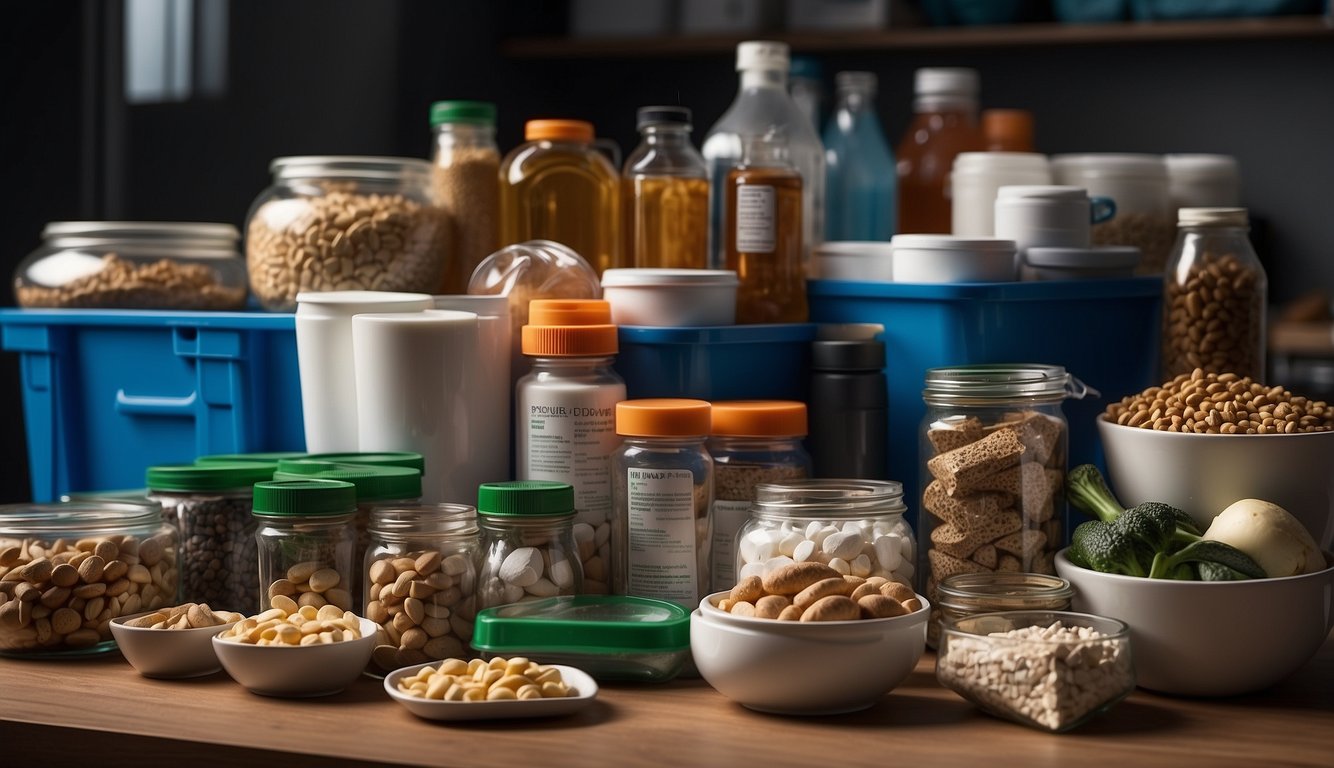
When bartering in a post-disaster economy, it’s crucial you understand the legal landscape and engage in ethical trading, while also protecting yourself from potential exploitation.
Ethical Trading Practices
You’ve got to keep it fair. Ethical trading means being upfront about the quality and quantity of the items you’re offering. Don’t oversell or undersell goods—what you promise should be what you deliver. Your reputation could be your most valuable asset, so maintaining honesty is key for long-term bartering strategies.
- Do:
- Be honest about item conditions
- Trade with transparency about the value
- Don’t:
- Hide defects or overestimate worth
- Pressure or deceive others into unfair trades
Preventing Exploitation and Abuse
Bartering boosts survival chances, but that doesn’t make it okay to take advantage of desperate people. Avoid power plays where you’re using someone’s dire needs as a bargaining chip. This isn’t just about staying on the right side of law, it’s about being a decent human being.
- Watch out for:
- Disproportionate trades that heavily favor you due to the other person’s desperation
- Trades that might deprive someone of their last life-saving resources
Keep trades fair, respect both parties involved, and protect the community vibe. Solid ethics can make or break your bartering strategy post-disaster.
Future-Proofing Your Stockpile
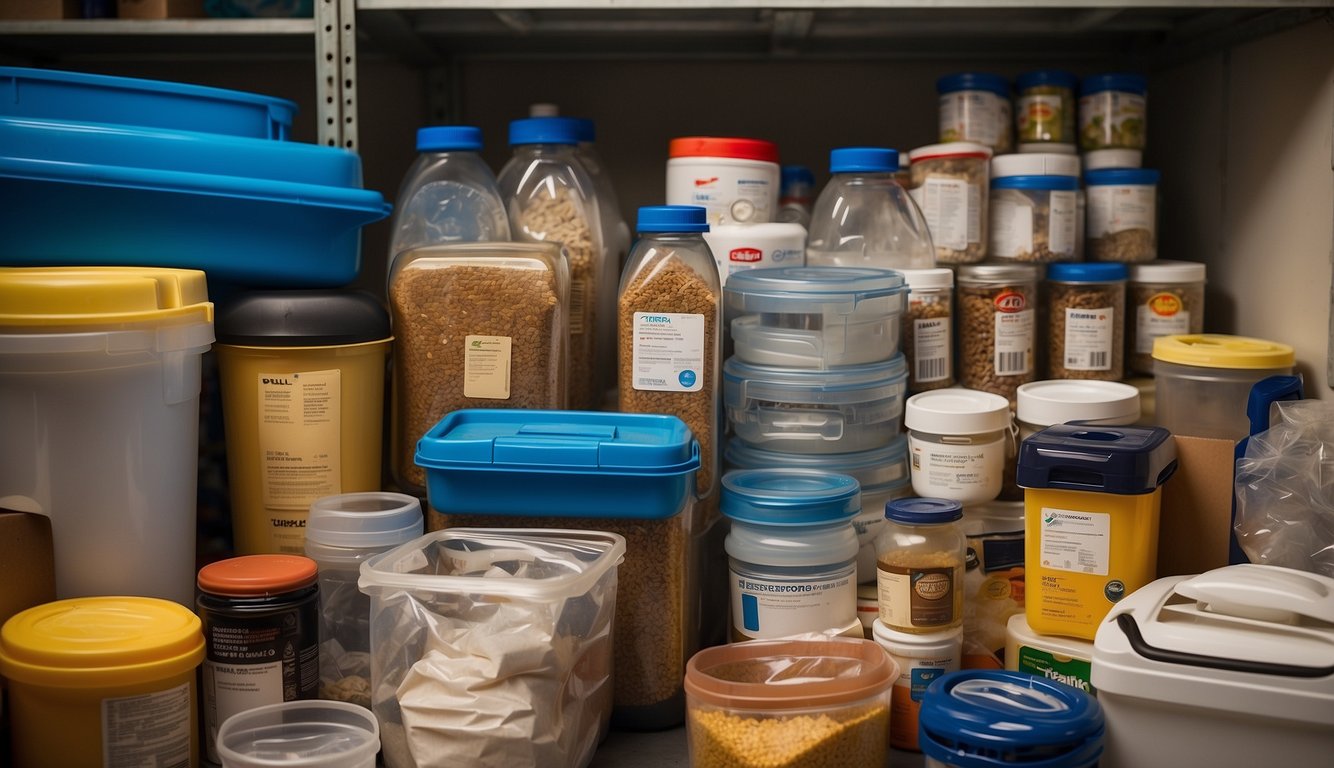
In post-disaster scenarios, survival hinges not just on what you have, but how well it adapts to new economies and social structures. Let’s break down how you can ensure your stockpile remains valuable over time.
Adapting to Long-Term Changes
Your stockpile’s relevance is subject to change as needs and circumstances evolve post-disaster. Secure a variety of goods that will remain essential, such as water, food, medication, and fuel. Prioritize items with long shelf lives and consider renewable resources like seeds or livestock to maintain sustainability. Your ability to adapt is crucial; be ready to shift focus based on what’s in demand.
- Essentials to Adapt:
- Water Purification: tablets, filters.
- Food: non-perishable, nutrient-dense items.
- Medicinal Supplies: antibiotics, first-aid essentials.
- Power Sources: solar chargers, batteries.
Expanding Your Network and Influence
Your network is a lifeline. Forge alliances with neighbors and local trade groups early on. The more people you know, the better you can trade your stockpiled items. Participate in or establish a local barter system which can provide security and a steady trade flow. Trust and reciprocity are your best assets in expanding your influence.
- Key Networking Strategies:
- Form trade pacts with reliable partners.
- Share skills and knowledge to increase your value.
- Engage in community building for mutual support.
Innovating Trade and Barter Systems
Stagnation can be your enemy. Introduce innovative ways to trade — think beyond basic barter. Maybe you can set up a point system for goods based on their utility and scarcity, or help create a ledger system to keep track of debts and credits in your community. Embrace technology too; simple communication tools can revolutionize how you connect and trade with others.
- Innovation in Trade:
- Credit Systems: akin to IOUs for large or ongoing trades.
- Trade Fairs: periodically organized events for large-scale bartering.
- Tech Utilization: radios or other tech to enhance communication and coordination.
Conclusion
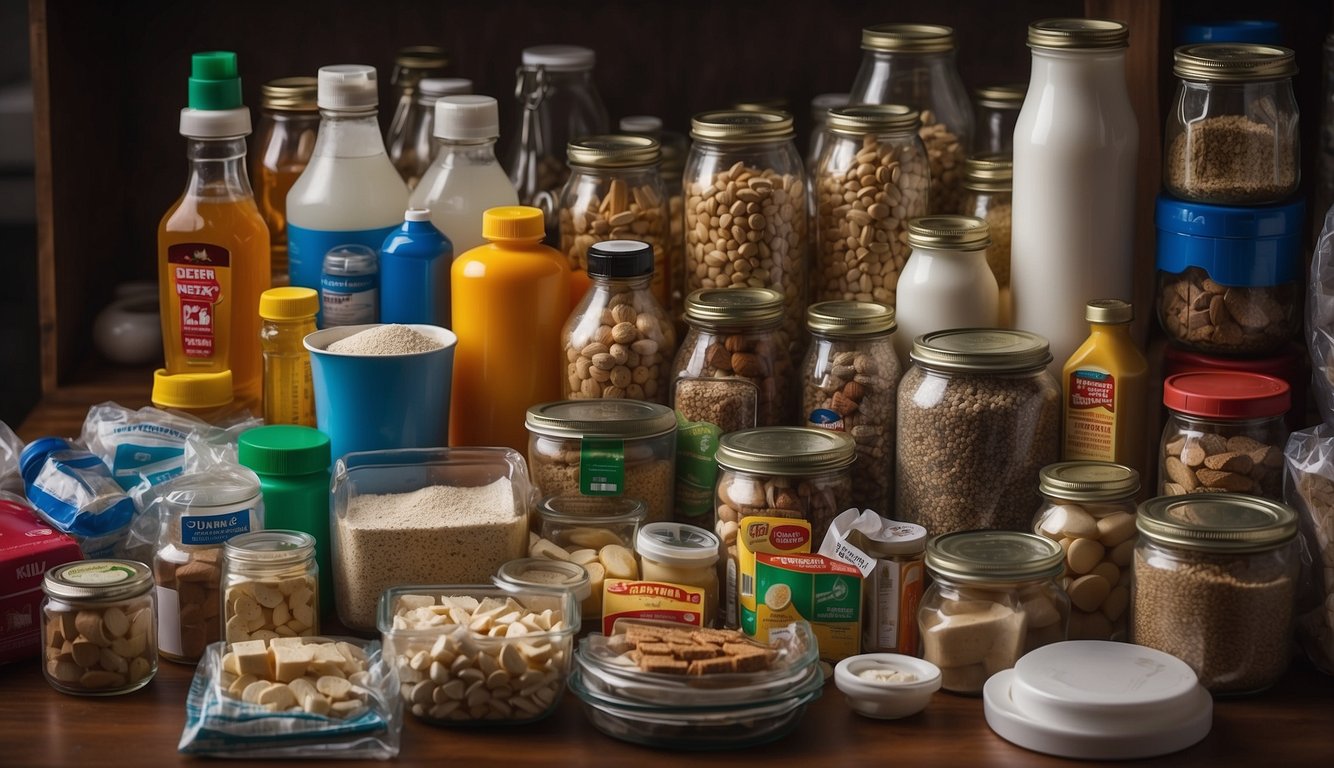
In a post-collapse world, your preparedness can be significantly bolstered by stocking up on key items that hold bartering power. Remember, in times where traditional currency might falter, tangible goods become the coin of the realm.
- Water Purification: Clean water is non-negotiable. Having water purification tablets or filtration systems can make you a vital trade partner.
- Food Supplies: Non-perishable food items are always in demand. Prioritizing items with a long shelf-life ensures you’ve got leverage when needed.
- Medical Supplies: From antibiotics to bandages, your stash of medical supplies can be worth its weight in gold.
- Tools and Fuel: Items that keep the world moving, like tools for repairs and fuel, will be indispensable.
- Personal Hygiene: It’s easy to forget the importance of personal hygiene products until they’re scarce.
Your goal? Build a stockpile that’s diverse and practical. You don’t have to have everything, but a well-rounded inventory can put you in a strong position for bartering. Storage is equally important; keep your supplies safe and discrete to avoid becoming a target.
The art of trade will be central to survival in a landscape stripped of its usual economic systems. Your foresight in gathering these valuable items could make all the difference.
Frequently Asked Questions
In a post-disaster economy, it’s all about survival and making do with what you’ve got. Let’s dig into what you need to know about stockpiling for trade when the conventional economy takes a nosedive.
What are the top items that become valuable for trade during times of economic trouble?
In times of economic difficulty, essentials like bottled water, non-perishable food, and medical supplies become hot commodities. Fuel, batteries, and hygiene products are also in high demand for trade.
What everyday goods should I have on hand for post-disaster trading?
You should stock up on items like painkillers, soap, toothpaste, and canned goods. These everyday items become scarce and valuable for trade in a post-disaster scenario.
During economic collapses in history, what have people commonly traded with?
Historical economic collapses have seen people trade with items that address basic needs: food staples, livestock, alcohol, and tobacco. Services like repair work or medical aid were also commonly bartered.
As a prepper, what supplies are most critical to gather for bartering purposes?
As a prepper, prioritize gathering water purification tablets, first-aid supplies, tools, seeds for growing food, and ammunition. These items are crucial for both survival and bartering.
What’s considered the universal ‘currency’ among survivalists and preppers when traditional money loses value?
Among survivalists and preppers, ammunition often becomes a form of universal ‘currency’. It’s always in demand for protection and hunting.
Can you list some unconventional or humorous trade items that might surprisingly hold value in a post-collapse economy?
Sure, think about items like spices or chocolate, which can boost morale. Also, playing cards or books could become surprisingly valuable for entertainment and mental well-being.

Leave a Reply